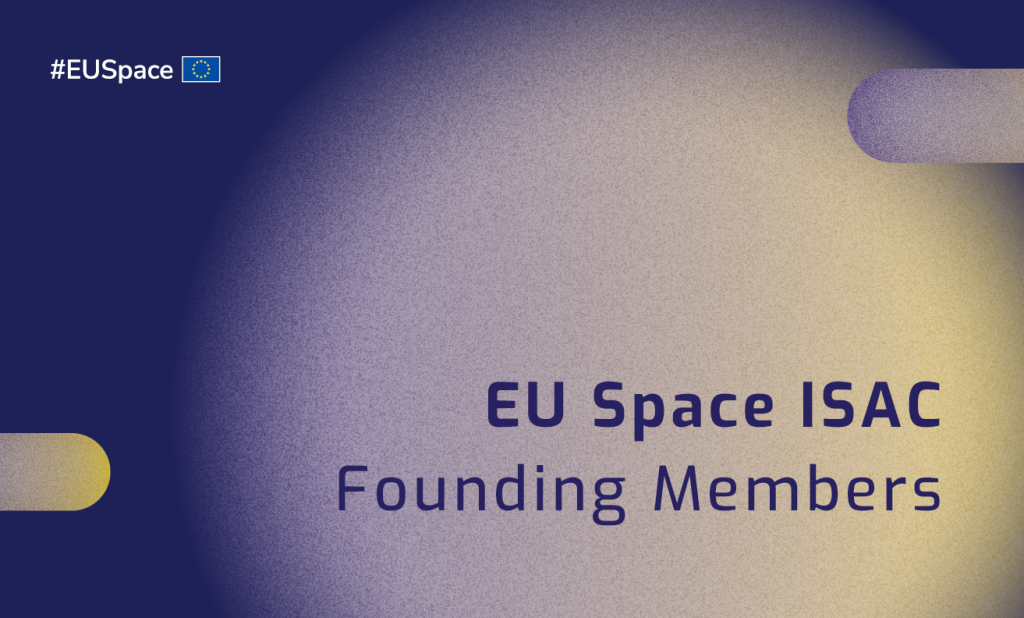Introducing the EU Space Information Sharing and Analysis Centre

In addition to its responsibility for implementing the EU Space Programme, EUSPA also oversees its security – continuing to take steps to ensure the confidentiality, integrity and availability of the data and services the programme provides.
Thanks to this expertise, EUSPA will play a key facilitating role in launching the EU Space Information Sharing and Analysis Centre (EU Space ISAC).
The EU Space ISAC is a network of EU companies from the space sector who are willing to develop their expertise to better prevent, tackle and mitigate security-related challenges, including cybersecurity. The initiative was specifically designed to promote collaboration, raise awareness, share information and best practices among members to strengthen their resilience and protection against security threats.
“The EU Space Information Sharing and Analysis Centre provides a safe environment for companies to voluntarily share information on a specific security situation or to solicit guidance on security implementation and governance for space applications,” explains EUSPA Executive Director Rodrigo da Costa.
The initiative is also a place to co-develop tools, co-produce position papers and to cooperate with public partners, who will play a key advisory role within EU Space ISAC.
Inaugural EU Space ISAC board meeting held
The EU Space ISAC held its inaugural Board Meeting on 24 April 2024. Co-chaired by the European Commission and EUSPA, the EU Space ISAC Board consists of 12 founding members representing both large industrial groups and small and medium sized enterprises (SMEs) from France, Germany, Italy and Spain.
During their two-year term, they will be setting-up the EU Space ISAC, recruiting new members and organizing the first activities.
During its first meeting, the Board agreed on common rules for the functioning of EU Space ISAC and established a first Working Group with the objectives to raise awareness and develop expertise of members on Security & Cyber Threats in the space sector.
Founding Members |
|||
|---|---|---|---|
A key component of the EU Space Strategy for Security and Defence
Stemming from the EU Space Strategy for Security and Defence, the EU Space ISAC is jointly facilitated by the European Commission and EUSPA.
“Working with the European Commission on establishing EU Space ISAC has been an important task for our agency, and one that we are proud of,’’ says da Costa. “Given our excellent track record on managing Galileo’s operational security and in light of our new role in the EU SST, we are excited to be able to share our space knowledge and security expertise with interested stakeholders.’’
Call for new participants remains open
EU Space ISAC’s call for new Members remains open, with applications being accepted twice per year. The cutoffs for 2024 are 30 April and 31 October. EU companies of all sizes, along with public partners, are encouraged to apply.
The initiative is of particular interest to SMEs and start-ups, who often have limited resources. “EU Space ISAC is a unique opportunity to stay ahead of the curve on the latest security trends and threats, tap into an unprecedented network of security-related expertise, and be at the vanguard of developing the tools and solutions that will contribute to a safer and more secure EU Space,” confirmed Guillaume de La Brosse, Deputy Director for Secure and Connected Space, within the DG DEFIS of the European Commission.
More information about EU Space ISAC membership can be found here.
Media note: This feature can be republished without charge provided the European Union Agency for the Space Programme (EUSPA) is acknowledged as the source at the top or the bottom of the story. You must request permission before you use any of the photographs on the site. If you republish, we would be grateful if you could link back to the EUSPA website (http://www.euspa.europa.eu).